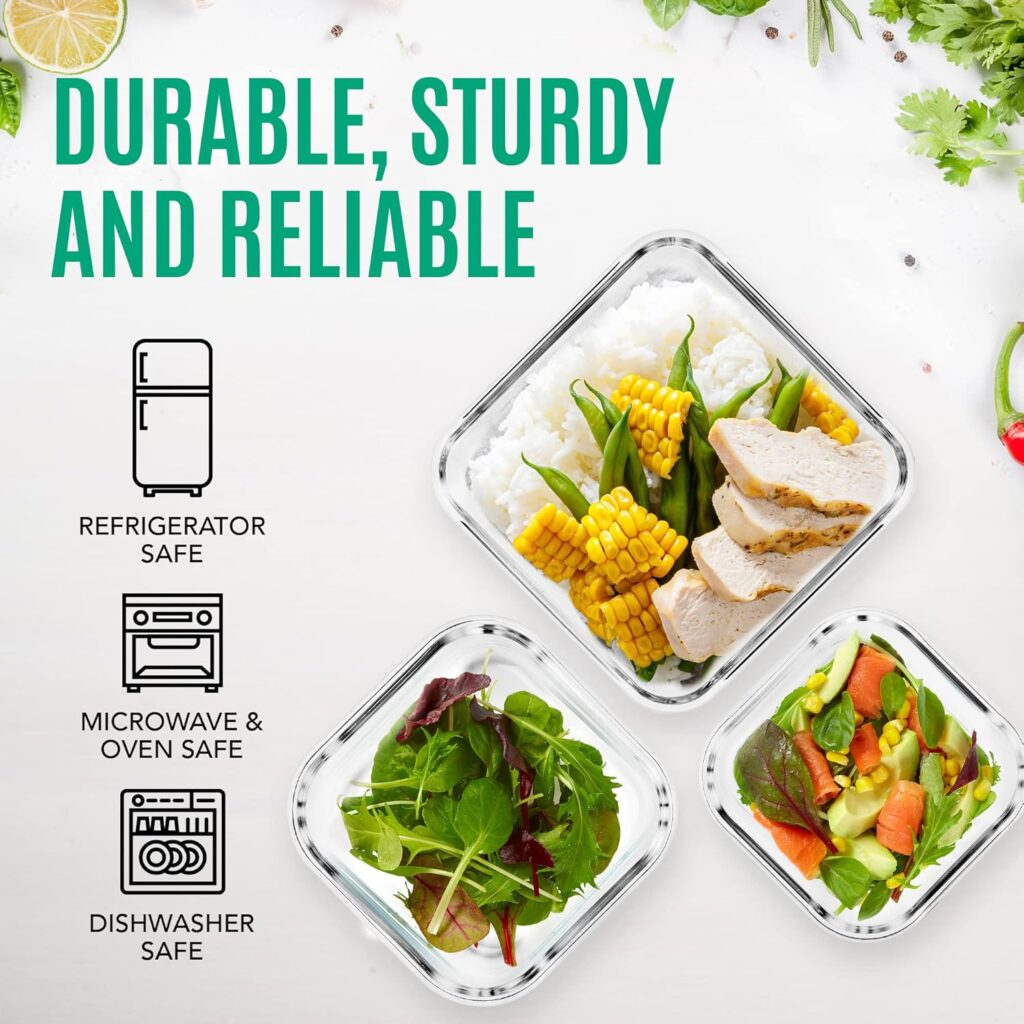Introduction
The debate between glass and plastic containers for food storage has long been a hot topic. Each option has its advantages, but which is truly better for your health, the environment, and long-term use? Let’s explore why glass may emerge as the superior choice.
BPA and Harmful Chemicals
One of the biggest concerns with plastic containers is their potential to release harmful chemicals. Many plastic containers contain Bisphenol-A (BPA), a chemical linked to health issues like hormonal disruption and developmental concerns. Over time, particularly when exposed to heat, these chemicals can leach into food. Even BPA-free plastics may contain alternative chemicals with similar risks. Glass food storage containers, on the other hand, are completely free from these harmful additives. As a non-toxic material, glass ensures safer food storage, keeping your meals free from potential contamination.
Durability and Longevity
Plastic containers tend to degrade over time, becoming stained, retaining odors, and succumbing to scratches or warping when repeatedly microwaved or washed in dishwashers. This significantly shortens their lifespan. In contrast, glass is incredibly durable, resisting stains, odors, and scratches even after long-term use. This makes glass containers a sustainable investment, eliminating the need for frequent replacements and reducing waste in the process.
Eco-Friendly Choice
The environmental impact of plastic is enormous. With millions of tons of plastic waste accumulating in landfills and oceans each year, plastic pollution poses a significant threat to ecosystems. Glass, being fully recyclable, stands out as an eco-friendly alternative. Unlike plastic, which can only be recycled a limited number of times before losing quality, glass can be recycled indefinitely without degradation. Switching to glass containers helps reduce plastic waste, making it a better choice for those looking to lessen their environmental footprint.
Heat Resistance
Glass containers excel in terms of heat resistance. Unlike plastic, which can warp, melt, or release toxins when exposed to high temperatures, glass remains stable. You can safely use glass containers in the microwave, oven, and freezer without worrying about any negative health effects. This makes glass a versatile option for all your food storage needs, whether you’re freezing soups or baking casseroles.
Airtight and Fresh
One of the practical advantages of glass containers is their ability to keep food fresher for longer. Equipped with airtight lids, these containers prevent air and moisture from seeping in, preserving the taste and quality of food. This is especially helpful for those who meal prep or store leftovers. Keeping food airtight extends its shelf life and reduces food waste.
Easy to Clean
Cleaning plastic containers can be a hassle due to the buildup of stains and odors. Glass containers, in contrast, are incredibly easy to maintain. They are non-porous, meaning they do not absorb food residues or odors, and they are dishwasher-safe, ensuring hygienic use over time. This ease of cleaning makes glass an ideal option for everyday use.
Aesthetic Appeal
Aside from functionality, glass containers also bring aesthetic appeal. Their sleek, clear design adds a sense of organization and style to any kitchen. Unlike plastic containers that may degrade and become unattractive over time, glass retains its pristine appearance. If you care about both style and functionality in your kitchen setup, glass is the obvious choice.
Conclusion
While both glass and plastic containers have their uses, glass outshines plastic in terms of health safety, environmental sustainability, and durability. Glass containers are non-toxic, long-lasting, recyclable, and versatile, making them a superior choice for food storage. By opting for glass, you not only safeguard your health but also contribute to a healthier planet. Make the switch to glass and enjoy the benefits of a safer, more eco-friendly kitchen setup.



